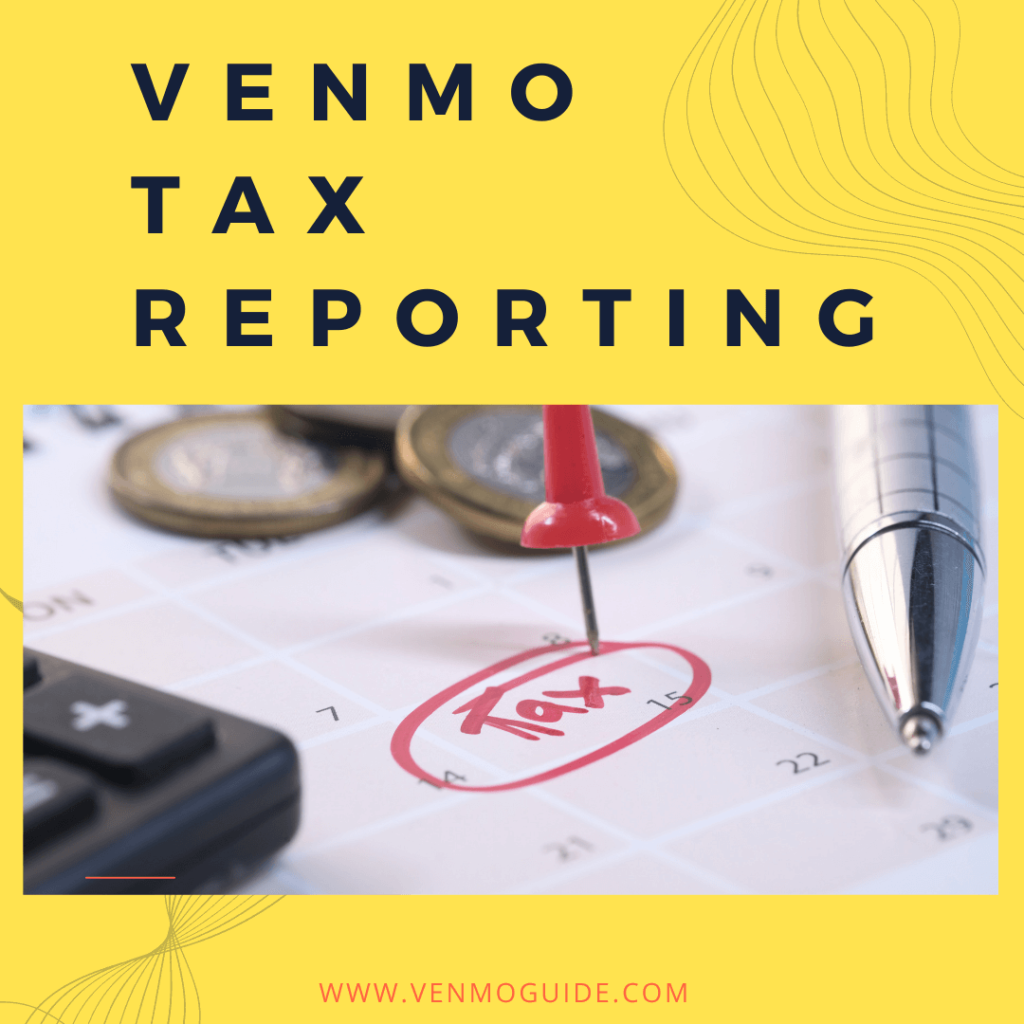If you’re a Venmo user, you probably want to know what tax reporting laws apply to your personal account. Read all about it.
Venmo has become super popular, and a substantial amount of money is circulated annually through the app. So naturally, large numbers draw the IRS’s attention.
For your personal account, Venmo won’t report your friends and family’s transactions to the IRS. However, if you use your account to accept business payments, these transactions need to be reported.
You might have been hearing about the new IRS laws and regulations regarding third-party payment apps and platforms, questioning whether these changes affect you.
As tax season approaches, we’re putting all your Venmo tax reporting uncertainties to rest. So, without further ado, let’s jump straight in.
Read: Do I Have to Pay Taxes on Venmo Transactions?

Does Venmo Report to IRS for Personal Account?
No, Your Venmo Personal transactions are not reported to the IRS for Personal payments such as splitting dinner bills, sharing rides with friends, paying for gifts, etc. unless you are receiving business payments via your Venmo account.
It is advisable to have different accounts for Venmo Personal and Venmo Business accounts.
Mobile App payments are a bit tricky for the IRS to monitor since it is quite similar to cash payments. So now, apps like Venmo will notify the IRS when transactions get up to $600 for business transactions.
RELATED: Venmo Donations Tax Deduction
The Venmo Taxing System
In the United States, the Internal Revenue Service (IRS) is the governmental body responsible for the enforcement of tax laws and tax collection. Lately, the IRS has taken a special interest in third-party payment apps and platforms. Being one of the top online payment platforms in the US, Venmo falls under this umbrella.
Before we get into the laws, it’s important to differentiate between the different types of Venmo accounts. You can have two types of accounts on Venmo: personal accounts and business accounts.
Venmo Personal Account Taxes
Venmo personal accounts are accounts that you use for your personal transactions. This means splitting dinner bills, sharing rides with friends, paying for gifts, etc. Such personal transactions aren’t taxable, meaning neither you nor Venmo is required by law to report them.
However, some people use their personal Venmo accounts to conduct business transactions. For such cases, your business transactions will be treated the same way a Venmo business profile would. Therefore, it’s always advised to keep your business and personal accounts separate for easier tracking and reporting.
Additionally, you’ll find that Venmo has placed a transaction limit for payments made to personal accounts. Therefore, if you frequently use your account to conduct business transactions, you may want to consider setting up a business profile on Venmo.
Venmo Business Account Taxes
“Venmo for Business” is an account type that allows you to have a business profile on the app. With this, your clients can Venmo your business the same way they Venmo their friends and family; it creates a convenient and familiar payment alternative.
The IRS has placed certain thresholds for reporting business income on Venmo. If your business fulfills the reporting criteria, Venmo will send you and the IRS two copies of Form 1099-K.
However, even if Venmo doesn’t send you the form, you’re still required by law to report any taxable “Venmo for Business” income on your income tax return. This happens when you cross these thresholds:
Current Thresholds
Venmo is required to report your business account earnings to the IRS if your business checks for both of two conditions:
- The business receives a total of $20,000 or more through the app within a calendar year.
- The business completes 200 or more separate transactions through the app within a calendar year.
New Thresholds
Under an American Rescue Plan Act (ARPA) provision, providers like Venmo must begin reporting business transactions totaling $600 or more to the IRS, with no minimum requirement of separate transactions. This American Rescue Plan effort was signed into law in March 2021 and should be effective starting January 1st, 2022.
Although there’s a tax revision proposal to raise the $600 threshold to $1000, the revision is yet to be passed as a law.
Frequently Asked Questions
What Is Form 1099-K?
Form 1099-K is a US tax form for Payment Card and Third Party Network Transactions. The form is intended to be filed with the individual tax return. It also serves payments received through a third-party network or credit/debit card transactions.
In other words, Form 1099-K is used to report financial transactions made through third-party platforms using debit and credit card transactions.
Who Sends the Form 1099-K?
If your business passes the required reporting thresholds, you’ll receive a Form 1099-K. The form is sent by Venmo, where your business receives a copy, and the IRS receives the second one.
What Should Venmo for Business Users Do?
Businesses need to keep good records of taxable and non-taxable transactions. Whether a third-party -Venmo in this case- reports your transactions to the IRS doesn’t change your responsibilities. As a business, it’s your responsibility to keep your own detailed receipts in check.
Additionally, always keep your accounts separate; avoid conducting personal transactions from your business account and vice versa.
Does the New ARPA Reporting Requirement Affect the Tax Consequences?
No, it doesn’t. While the ARPA provision affects the reporting thresholds, it doesn’t interfere with the taxing consequences. So, for example, if your business receives an amount of money in exchange for a provided good or service, it automatically becomes liable for federal income tax on that amount.
The medium through which you receive the money doesn’t affect the taxing nature of the transaction. So whether you receive the amount in cash, credit card, check, or Venmo, your business remains liable.
Do I Have to Report My Venmo Dinner Bill?
Luckily, you don’t. The transactions you make on your personal Venmo account between your friends and family don’t have to be reported. You’re only required to report personal Venmo transactions if you use your Venmo account to conduct business transactions.
Bottom Line
To sum up, you don’t have to worry about the back-and-forth peer-to-peer Venmo transactions you make through your personal account.
However, the rules change once you start accepting business payments to your personal Venmo account.






